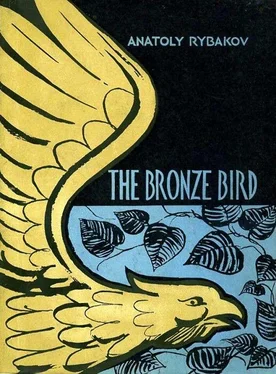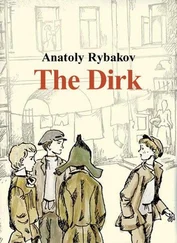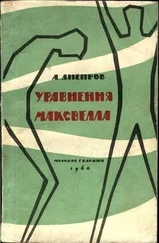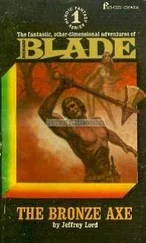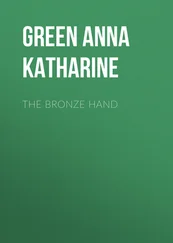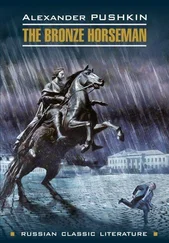Anatoly Rybakov - THE BRONZE BIRD
Здесь есть возможность читать онлайн «Anatoly Rybakov - THE BRONZE BIRD» весь текст электронной книги совершенно бесплатно (целиком полную версию без сокращений). В некоторых случаях можно слушать аудио, скачать через торрент в формате fb2 и присутствует краткое содержание. Город: Moscow, Год выпуска: 1956, Издательство: Foreign Languages Publishing House, Жанр: Детские приключения, Детектив, Исторические приключения, на английском языке. Описание произведения, (предисловие) а так же отзывы посетителей доступны на портале библиотеки ЛибКат.
- Название:THE BRONZE BIRD
- Автор:
- Издательство:Foreign Languages Publishing House
- Жанр:
- Год:1956
- Город:Moscow
- ISBN:нет данных
- Рейтинг книги:5 / 5. Голосов: 1
-
Избранное:Добавить в избранное
- Отзывы:
-
Ваша оценка:
- 100
- 1
- 2
- 3
- 4
- 5
THE BRONZE BIRD: краткое содержание, описание и аннотация
Предлагаем к чтению аннотацию, описание, краткое содержание или предисловие (зависит от того, что написал сам автор книги «THE BRONZE BIRD»). Если вы не нашли необходимую информацию о книге — напишите в комментариях, мы постараемся отыскать её.
THE BRONZE BIRD — читать онлайн бесплатно полную книгу (весь текст) целиком
Ниже представлен текст книги, разбитый по страницам. Система сохранения места последней прочитанной страницы, позволяет с удобством читать онлайн бесплатно книгу «THE BRONZE BIRD», без необходимости каждый раз заново искать на чём Вы остановились. Поставьте закладку, и сможете в любой момент перейти на страницу, на которой закончили чтение.
Интервал:
Закладка:
Kit hung his head.
Slava, as the chairman, noted that questions were out of order. If Igor wanted to criticize Kit he could, but if he started asking questions it would give rise to a squabble and to unnecessary argument.
"No, Kit could never endure that kind of torture," Igor went on bitterly, "and that means his craving for food is stronger than his convictions. A person like him has no business being a Komsomol. Now when Seva and I decided to go to Italy to fight the fascists...
Slava stopped him again, telling him not to speak about himself. Others would soon do that and then if he wished he could explain why he ran away from the camp.
But when Igor and Seva came up for discussion, neither the one nor the other showed any desire to offer an explanation. When you came to think of it, what was there to explain? They had roused everybody's indignation. Were they children? Did they not realize that they would never have got to Italy and would not have licked any fascists? The whole idea was preposterous. It came from a desire to show off, to pose as heroes. Was that the quality of a Bolshevik?
"It's the kind of thing you'd expect from Socialist-Revolutionaries," Misha said. "It's petty-bourgeois individualism. It's as much as saying: I do what I want and the others can go hang themselves! What do I care about my comrades, my parents! Let them worry, let them be anxious, but I'll do what I want and that's all I care! What it boils down to is that a whim is dearer than friends and parents. They place their personal interests above the interests of society. And the name for that is egoism, and egoism is the most despicable belch of bourgeois ideology. That is what Igor and Seva must think about!"
Chapter 35
SELF-CRITICISM
(Continued)
The next day, the meeting was resumed in the morning so that it could be finished by nightfall.
They began with Slava. He turned his functions as chairman over to Misha, naturally only for as long as he was discussed.
Genka rose to speak first.
"Slava is a good Komsomol, nobody will deny that. He is honest, just and conscientious. But," Genka frowned, "somehow he's irresolute. He can never make up his mind quickly. He doubts everything. His usual questions are: Why? What for? Is it necessary? That kind of thing won't do!" Genka waved a fist. "In everything you do you need to be firm, bold and quick. Where is Slava's will-power? His greatest drawback is that his reaction is slow," Genka looked round triumphantly. "But when there's a need, he too can come out with a high-sounding word. So there. He has to train his will-power. What should he start with? I say, physical culture. Yes, yes, don't laugh! Slava does not go in for sports and even shirks morning exercises. In this connection it is said that a healthy body makes for a healthy mind. That is what you find in books. And it should be remembered."
But all the other speakers praised Slava. He was liked in the troop. Misha, too, praised him, but added that Slava was a flabby intellectual. True, he was growing up in an intellectual family, his father was a "specialist." But he had to re-educate himself, to acquire proletarian, workingmen's qualities.
"So far as I am concerned," declared Zina Kruglova, "I don't understand what these special workingmen's, proletarian qualities are.
A person is a person regardless of whether he is a worker, an office employee or an intellectual. Ideologies can be different, but human qualities do not depend upon that. You get workingmen with human qualities inferior to those of intellectuals. So I think social origin has nothing to do with it."
"What d'you mean?" Genka cried. "Don't you know that a man's way of life determines his consciousness? The working-class consciousness is different from that of the bourgeoisie. The intelligentsia is an intermediate stratum and it is wavering." Slava was hurt.
"Does that mean I'm an intermediate stratum?" "You-no," Genka replied conciliatorily, "you are living in Soviet years. I was talking about the old intelligentsia." But Zina Kruglova insisted on her point:
"I disagree. Like all other people, Slava has his shortcomings, but his intellectual origin cannot be taken into account. Look at Genka. His origin is proletarian, but he has incomparably more faults."
Genka sprang to his feet and declared heatedly that the discussion about him had been closed and there was no reason for returning to it. As regards the role of the intelligentsia, he fully concurred with what Misha said. Naturally, you could not fit everybody into one and the same pattern-Slava, for instance, was one of the boys- but that did not change the social essence of the intelligentsia as an intermediate stratum.
As Slava was offended, Misha considered it necessary to explain what he meant.
"Now here is what I had in mind," he said. "What does proletarian psychology boil down to? To the fact that the proletariat have nothing to lose except their chains. The bourgeoisie, meanwhile, own property and are holding on to it. That is why the proletariat are for the common cause and the bourgeoisie are against it. In their hearts, the intelligentsia support the proletariat, but because of their position they are tied up with the ruling classes. That is the cause of their wavering and hesitation. I naturally did not mean Slava, but spoke generally. Slava's psychology is one hundred per cent proletarian, but in his character he still has some traits of the flabby intellectual. As a matter of fact, I am only stating my own opinion and it is entirely up to Slava to take it or not."
The meeting continued. Most of the troop had already been discussed. There was just criticism of everybody, even of the fighter for justice himself-Baranov, otherwise known as the Bleater. The criticism against him was that he plumed himself on his fight for truth. He was transforming that fight into an end in itself. He was not so much revolted at injustice as he was attracted by the pose of a fighter for justice. It was pointed out to him that injustice should be fought with a view to abolishing it and not in order to acquire fame as an irreconcilable fighter for justice.
Misha, like everybody else, took part in the discussion. But all the time his mind was occupied with the thought whether he himself would be discussed.
The crux of the matter was that when Kolya Sevastyanov was the leader of the troop, he was never discussed. That was only natural-he was the senior... Now the leader was Misha. That meant he ought not to be discussed. But on the other hand, he was not an adult, but a Komsomol like the others. Actually, this was sooner a small Komsomol cell rather than a troop. Had Kolya Sevastyanov been with them, Misha would have been discussed like all the others. But how was he to act under the circumstances? He had no particular desire to be discussed, not that he was afraid of being criticized but the mere fact of being discussed would show that though he was the leader of the troop he was not of the same calibre as, say, Kolya Sevastyanov. On the other hand, he did not see how he could prevent himself from being discussed. That would not be democratic and the troop would take it as conceit. The best course would be to let them decide themselves. They might not be intending to discuss him at all, for it was an unwritten rule that leaders were never discussed. Even if they decided to discuss him, there was nothing, he felt, they could criticize him for. He was fair to everybody and had no favourites. And if he had been exacting at times, it had been his duty as leader.
But the anticipation that he would not be criticized was not justified. When the discussion was over, Slava said:
"Comrades, we have come to the end of our list. There's only Misha left. He is our leader and, as a rule, we don't discuss the leader of the troop. But Misha is one of us, our class-mate and a member of our Komsomol cell. What shall we do? What do you think, Misha?"
Читать дальшеИнтервал:
Закладка:
Похожие книги на «THE BRONZE BIRD»
Представляем Вашему вниманию похожие книги на «THE BRONZE BIRD» списком для выбора. Мы отобрали схожую по названию и смыслу литературу в надежде предоставить читателям больше вариантов отыскать новые, интересные, ещё непрочитанные произведения.
Обсуждение, отзывы о книге «THE BRONZE BIRD» и просто собственные мнения читателей. Оставьте ваши комментарии, напишите, что Вы думаете о произведении, его смысле или главных героях. Укажите что конкретно понравилось, а что нет, и почему Вы так считаете.
